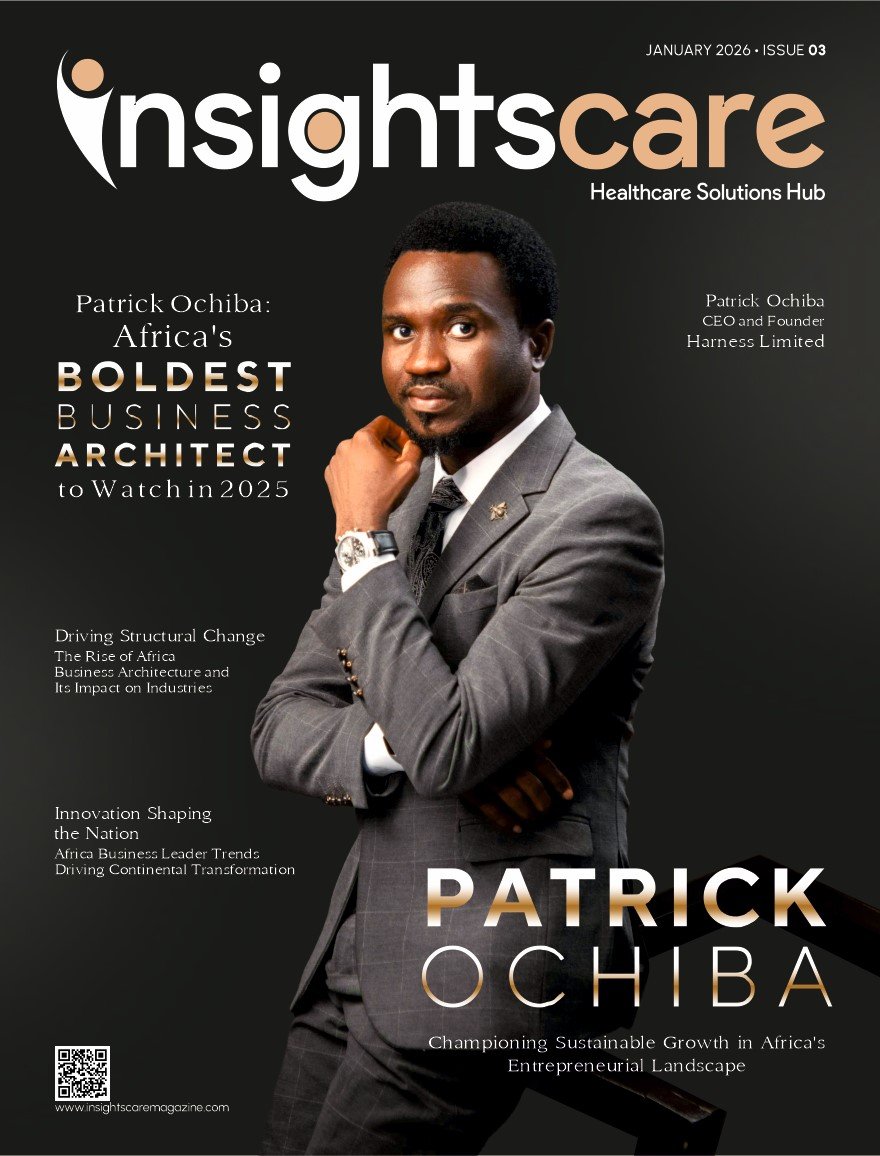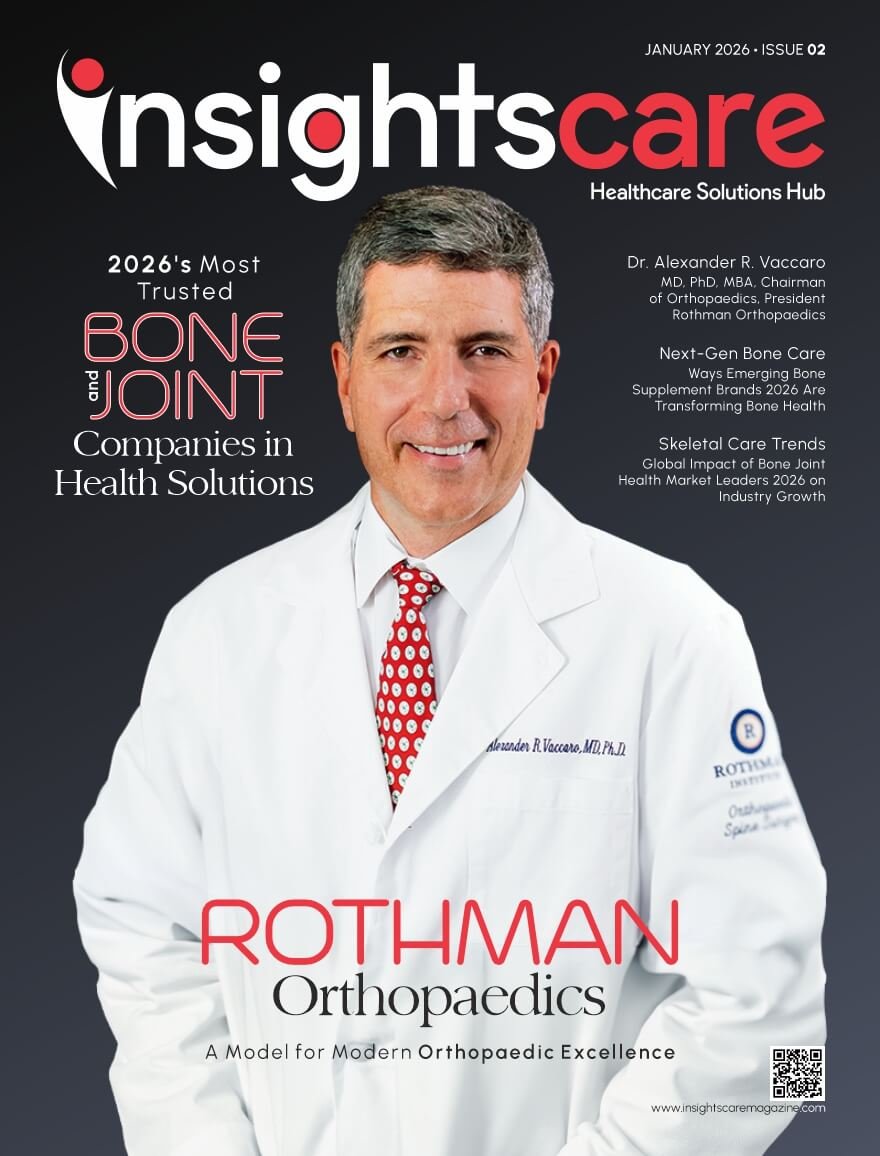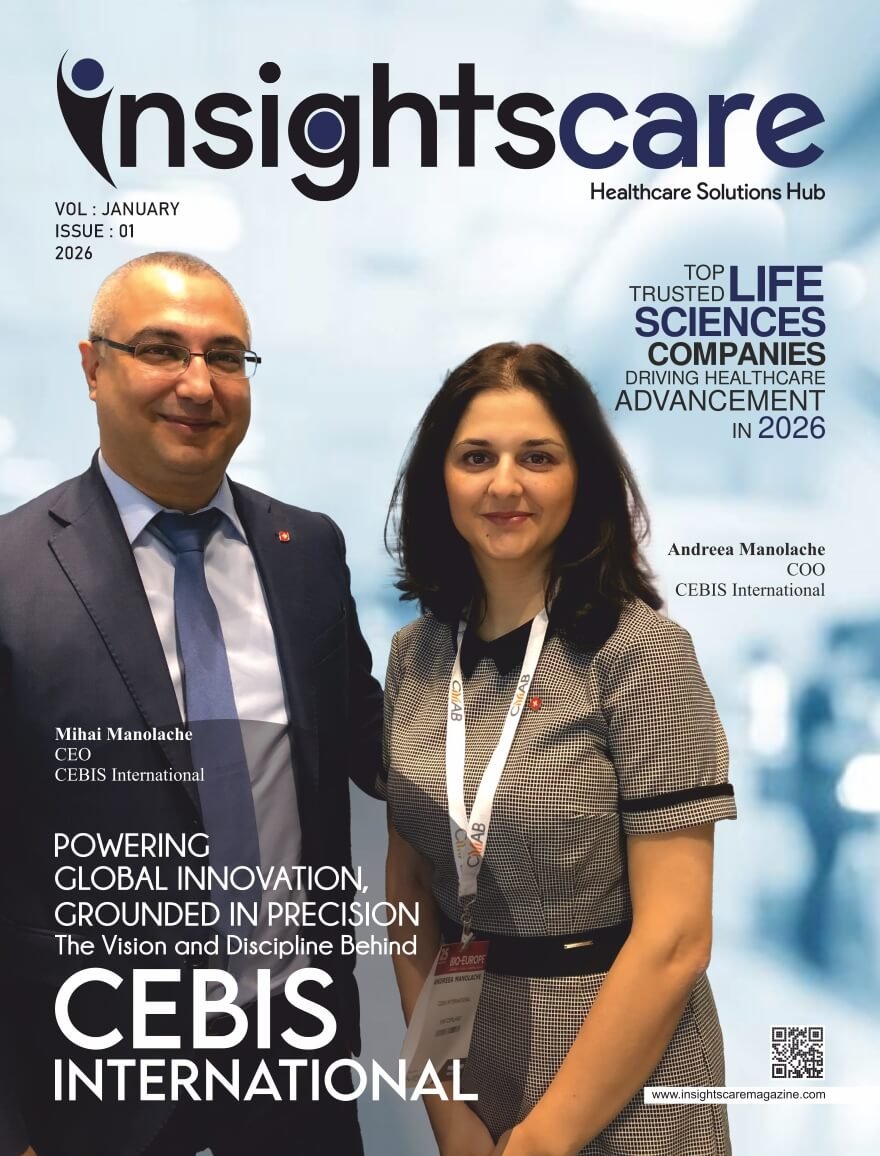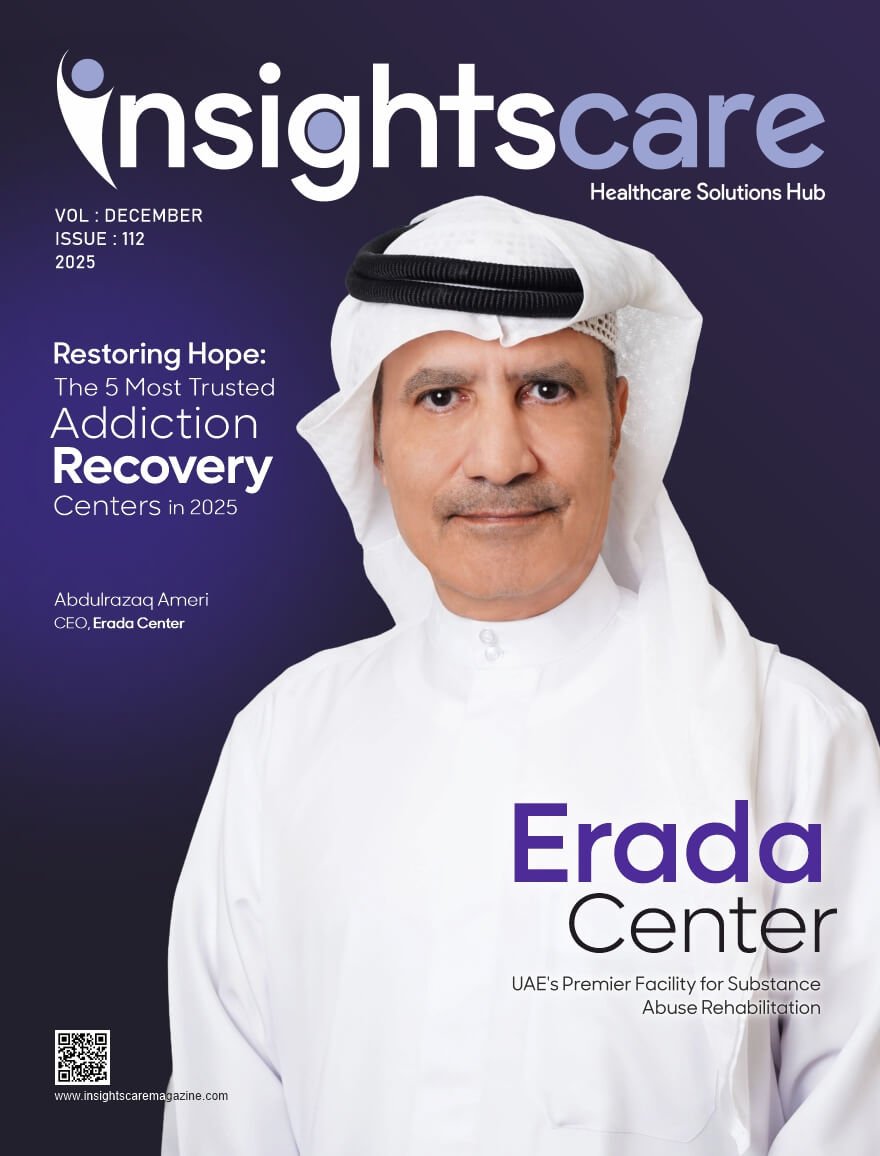Healthcare delivery relies on both its personnel and professional services of equal importance. Successful medical progress alongside patient healing requires passionate workforce dedication which surpasses both technological capabilities and medical expertise. A healthcare system depends on its workforce because employees determine the quality-of-care delivery and affect patient results, alongside making important transformations.
As Chief Human Resources Officer (CHRO) of Keck Medicine of USC, Ekta Vyas directs workforce initiatives for the organization. Her vision serves to transform human resources strategy and operations at the institution by providing staff with necessary tools to meet healthcare’s evolving demands while achieving maximal engagement and empowerment. Defining and overseeing workforce management strategies is core to her position as CHRO. Effectiveness of workforce strategies is best measured by the impact on the ultimate customer, the patients and their families, and how people strategies create an environment of quality care for patients and the development of skillsets needed to handle future healthcare needs.
Ekta’s journey in healthcare is strongly rooted in her strategic leadership approach that emphasizes strengthening both the capacity and capability of the human resources function at organizations she has worked at and thoughtfully positioning them to navigate and manage the complexities of the healthcare industry. Her commitment goes toward creating an adaptable workforce that will withstand healthcare industry changes and maintain high-quality, compassionate medical service delivery.
Let’s explore how this visionary leader is shaping the future of healthcare, transforming HR practices, and preparing the workforce for the challenges and opportunities ahead!
Shaping the Future of Healthcare Delivery Through Strategic HR
Ekta recognizes the Human Resources function plays a vital role in transforming employee experience in healthcare institutions, which in turn directly impacts the patient experience. She also emphasizes that recent years have seen a rise in virtual healthcare alongside ambulatory services and home health settings—a growing reality of how healthcare will be delivered in the future. Such a shift has made it vital to develop innovative staff management approaches and retention strategies as the approach to hiring, motivating and engaging the workforce has significantly changed. The increasing generational diversity, along with intensified financial stress, also creates sophisticated challenges for workforce management.
When asked about her approach to creating successful HR strategies, Ekta emphasized the balancing act healthcare HR strategies demand today. In her perspective, the healthcare industry faces escalating regulations, increasing workforce management complexities year after year. The industry has for the past few years seen shifting employee expectations on many fronts—flexible schedules, remote work, creative options for employee upskilling and innovative career paths, to name but a few. Creating successful HR strategies in this new healthcare environment is a balancing act since investments in building and evolving HR infrastructure have to be weighed carefully for their sustained relevance in the emerging future. As such, people strategies should be crafted such that they create space for healthcare institutions to develop better workforce support systems to deliver optimal patient care in the evolving and newly emerging healthcare landscape. Keck Medicine’s HR division is responding to such challenges by creating an HR organizational design that is well positioned to embrace the changing industry realities by investing in HR staff and leader competencies for expert partnerships at all levels of the enterprise for enhanced performance.
The HR transformation at Keck Medicine involves a three-pronged approach: strengthening the Centers of Excellence to design impactful strategies, launching an HR Business Centre to standardize and centralize transactional tasks across the system, and enhancing HR Business Partners’ collaboration with various hospitals and ambulatory locations. Through this, the organization is ensuring HR is not just reactive but also proactive in its approach to organizational growth and adaptability.
Ekta sees strong organizational structure as essential to enabling the HR team to reach its maximum potential. She emphasized that significant thought was given to redesign the HR model to strengthen its readiness for upcoming challenges and future business development.
Harnessing Technology for Better Workforce Management
Technology is becoming increasingly important for HR operations, and Ekta believes it represents the key to maintaining competitive advantage. Successful technology implementation and integration requires more than adopting new devices. It involves implementing technologies with a complete understanding of the stakeholder expectations and process efficiency needed at every touchpoint. The critical question for Ekta goes beyond which new technologies exist and instead focuses on finding ways organizations should invest in technology that transforms workforce management practices for greater user efficiency in process delivery.
In discussing the role of technology in driving HR transformation at Keck Medicine, Ekta expressed her excitement about the recent launch of HR Business Center, the systemwide hub for processing transactions and delivery of HR operations through a combination of HCM and other relevant process automation tools. She shared the major system integrations and interfaces implemented during the recent workforce integration initiatives for USC Arcadia, Keck Medicine’s newest entity, while emphasizing that the digital instruments deployed at Keck Medicine and the roadmap emerging for the near future will continue to strengthen the HR service delivery model and strategic relevance to drive organizational effectiveness.
In a recent panel discussion facilitated by Becker’s Healthcare, Ekta shared the organization’s competitive edge with the implementation of AI-enabled technology that offers a self-scheduling function. Keck Medical Center has already seen success with an AI-powered scheduling tool, which not only optimizes staffing but also reduces burnout by automating scheduling tasks. Additionally, she shared that recent upgrades to their core scheduling system helped them drive higher compliance with state and federal regulations associated with wage and hour regulations. Digital onboarding solutions are another win for Keck Medicine, and the HR team has now formed an internal technology committee to educate themselves on existing and emerging technology that offers promising solutions for HR’s evolving landscape. Since HR transformation is so much about transforming the employee experience, the Keck Medicine HR team is working on deploying a new HR Employee Experience platform to support internal communications across the system. The initiative aims to improve workforce engagement, provide a centralized hub for HR communications, and provide advanced data analytics.
What excites Ekta even more is the potential of predictive analytics, as the HR transformation is now embarking on the journey of evolving the analytics function beyond standard HR metrics with the newly established COE for analytics and project management. As a firm believer in evidence-based management practices, Ekta believes that advanced analytics through use of sophisticated tools help organizations forecast staffing needs, correlate employee engagement with organizational influencers and predictors, and ensure that organizational resources are deployed where they’re needed most. With data transparency and alignment across systems, HR can make more informed decisions on everything from staffing models to employee engagement strategies. This data-driven approach is what Ekta believes will help shape the future of healthcare workforce management.
AI, while still in its early stages at Keck Medicine, is already showing promise in areas such as staffing and scheduling, as mentioned earlier. Ekta believes that AI’s role will expand over time. While the healthcare industry is cautious with AI adoption, she sees significant opportunities in areas like process automation, knowledge management, and workplace safety. Ekta emphasizes that adopting AI must be thoughtful, with thorough assessment and consideration.
AI and Automation
AI and automation are transforming how work is performed, especially in healthcare settings. On the clinical side, Keck Medicine has already begun leveraging AI for tasks like scribe-like interventions in the Electronic Medical Records (EMR) system. Early results hold promise in reducing physician burnout and enhancing the overall patient experience.
Ekta recognizes the excitement and concerns surrounding AI, especially regarding job security. However, she emphasizes that adopting AI doesn’t mean replacing jobs—it’s about enhancing capabilities and enabling the workforce to perform more effectively. As she explains, “AI is transforming how work is performed. It’s not just about implementing new tools, it’s about understanding how those tools will improve the way we work and ensure we’re all moving forward together.” In an interesting discussion about AI’s potential to replace HR, Ekta emphasized that HR is a field of expertise, especially in a heavily regulated industry such as Healthcare, that can never have a replacement of any sort. Instead, once the cautions are addressed, AI brings the possibility of increasing HR’s potential to be more strategic by enabling better efficiencies in existing processes and customer interactions.
In Keck Medicine’s approach to AI, transparency is key. The organization has made sure to involve its workforce in the process, addressing concerns, providing education, and encouraging open dialogue. For example, when the self-scheduling system was introduced, leadership held discussions with nurses through the Professional Practices Committee to ensure they were comfortable with the new tool. This helped alleviate concerns and ensured that the transition was as smooth as possible.
Addressing Workforce Shortages and Improving Retention
Many healthcare organizations nationwide face persistent workforce deficits and Keck Medicine HR has similar challenges across different talent management touchpoints. Ekta emphasizes the value of creating strong partnerships with organizational leadership and her team addresses such challenges by developing proactive solutions as strategic thought partners. During the past two years, Keck Medicine HR has undergone a complete overhaul of its HR programs and service delivery model for acquiring and holding onto talent. The objective goes beyond attracting top candidates since it aims to nurture conditions that are effective in keeping exceptional talent with the organization long term.
“We’ve reimagined our approach to talent acquisition and retention,” she says. “Our goal is to streamline the hiring process so we can bring on top talent quickly, but we also want to ensure that once they’re here, they feel supported and valued.”
Keck Medicine will be soon launching a new employment website that showcases the organization’s offerings, including total rewards, employee development opportunities, and organizational culture. The improvements implemented in the talent acquisition program are already making a noticeable difference in attracting top-tier candidates. Additionally, the organization has strengthened its employee feedback mechanisms, introducing surveys at different stages of the employee lifecycle, including new hire surveys at 30, 90, and 180 days. These insights, when combined with exit interviews, provide valuable data that informs retention strategies.
Retention rates at Keck Medicine are already well above industry benchmarks, a testament to the success of these initiatives. As Ekta notes, “Employee engagement, well-being, and inclusion are crucial to keeping the talent we attract. We’re seeing that our focus on these areas is working.”
The launch of Keck Medicine’s “Leading at Keck” framework is another key initiative. It’s designed to strengthen leadership at all levels of the organization, providing coaching and developmental programs to ensure leaders are equipped to support their teams in the rapidly evolving healthcare environment. This initiative is just one of the many steps the system is taking to foster a positive and supportive environment for all employees.
The Future of Hybrid Work in Healthcare
As the world adjusts to the new normal, the future of work—particularly in healthcare—is evolving. The pandemic accelerated the adoption of remote work across industries, and healthcare organizations like Keck Medicine are finding the right balance between in-person and remote work. For some roles, particularly those in patient care, physical presence is a necessity. However, for many non-clinical positions, hybrid work is becoming increasingly feasible.
“We’ve found a good balance between in-person and remote work,” Ekta explains. “Going forward, we’ll continue to refine how we handle this, using technology to make sure we’re staying connected and collaborating effectively, regardless of location.”
While hybrid work may not be an option for all roles, the healthcare industry is learning how to adapt. The development of new technologies and care delivery models will likely lead to new hybrid work opportunities, allowing employees to engage in meaningful work while still enjoying flexibility.
Leading the Charge in Personalized and Precision Medicine
As personalized and precision medicine takes center stage in healthcare, Keck Medicine is ensuring its workforce is prepared to meet the demand for specialized care. Ekta points out that the organization’s status as an academic medical institution allows it to lead in areas like clinical research and breakthrough treatments.
“Our focus on clinical excellence and advanced practice standards has made us a leader in specialized care,” Ekta says. “We’re also committed to attracting and retaining the best talent to help us continue our mission of providing cutting-edge care.”
The recruitment strategy of Keck Medicine targets critical care specialties to achieve readiness in precision medicine delivery. The organization functions as a training facility for future specialists which positions it to maintain its leadership role in this evolving field.
Aligning HR Strategies with Value-Based Care
The shift toward value-based care is reshaping the healthcare landscape, and HR is playing a pivotal role in this transition. At Keck Medicine, HR strategies have evolved to align with the growing demand for patient-centered care and interdisciplinary collaboration.
“Our staffing models have shifted to become more patient-centric,” she explains. “By creating specialized recruitment pods, we’ve improved our hiring processes and reduced hiring timelines. This has allowed us to better support the growth of our ambulatory care services.”
Furthermore, incorporating advanced people analytics in the HR strategic model will allow Keck Medicine to better forecast staffing needs, ensuring that the organization is prepared to meet the growing demands of value-based care.
Envisioning the future
Human Resources at Keck Medicine of USC is creating a future where HR moves beyond a supporting role to a key enabler of organizational effectiveness. Ekta and her team are working hard to build the foundation for success by embracing innovative HR practices while developing their workforce and adhering to organizational mission objectives to maintain readiness in facing healthcare industry transformation. Through their progressive mindset Keck Medicine stands ready to tackle future healthcare challenges while their staff prepares to accept whatever changes lie ahead.










